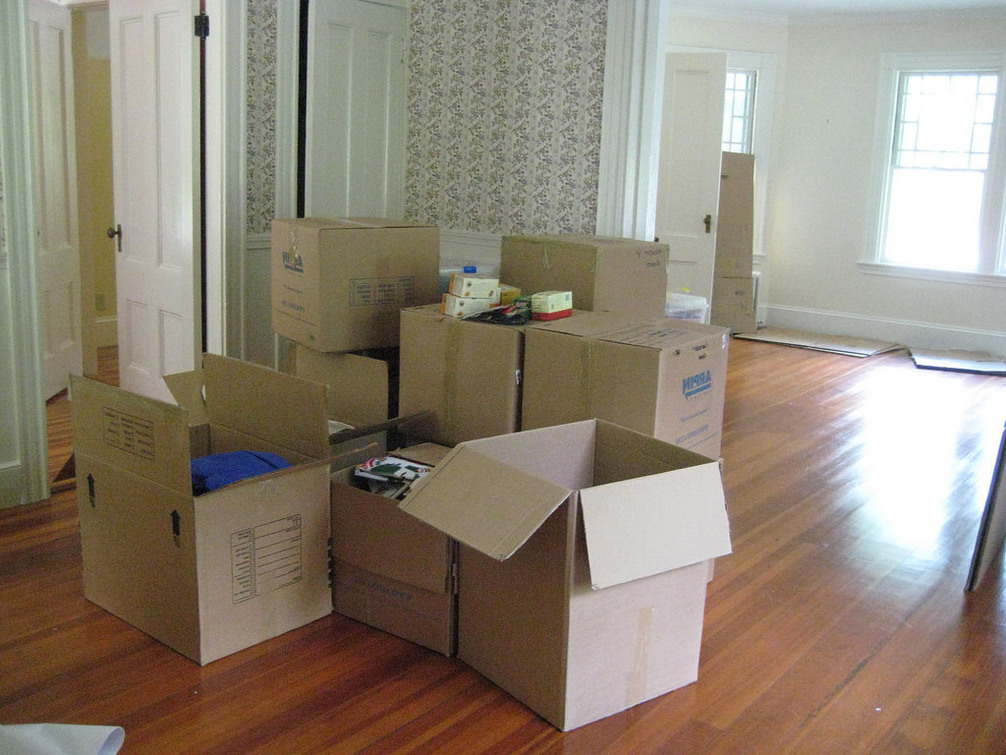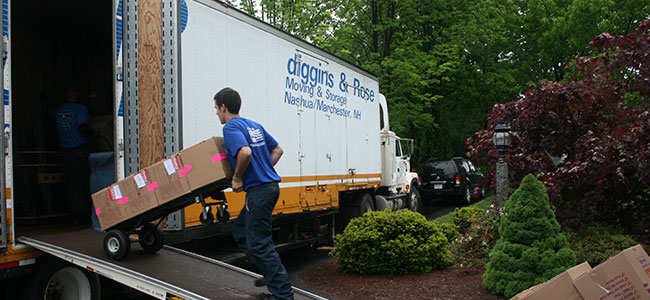Six Tips for Planning a Cross Country Move to New York City

So, you have decided to move to New York City. This major metropolitan city is different than any other in the country, so here are six tips to help your upcoming transition, if you’re moving across the country.
1. Ditch the Car
Driving anywhere in the New York City, and especially Manhattan, is not recommended. Traffic moves at the pace of a snail, and having a car gets to be expensive. The good news is that much of the city can be easily accessed by foot, the subway, buses, rideshare transport or a taxi. Leave the car or sell it if you know you will be staying in the city long term.
2. Be prepared to get lost
It is no secret that New York City is large and densely populated. With long streets and a non-intuitive subway system to the uninitiated, you are bound to take a wrong turn or get lost at some point. Do not be afraid to reference a map when needed. The nice thing about New York City, since it is designed to be walkable, is that even if you get lost, you could come across a store, restaurant or other attraction that catches your eye.
3. Make sure you can afford it
Depending on where you are moving from, the cost of housing, services, and everyday life will be much higher than to what you are accustomed. Before you move, make sure you can afford it. If money is tight, consider moving once you know you will be able to live comfortably.
4. Do housing research beforehand
Research the best and safest neighborhoods in which to live in New York City. Make sure you have the needed paperwork to sign a lease. If you are apartment hunting, try to see buildings before you sign the lease. StreetEasy and NYBits are good resources where you can view listings and set up appointments to see spaces. Know exactly what you are getting before you commit to anything.
Here are some things to keep in mind when looking at any living space:
- Is laundry available?
- How far from a subway stop are you? The grocery store? Your place of employment? A hospital?
- Do things appear to be clean or dirty? Do the appliances work?
- How secure is your living space?
5. Dress for the weather
There are four distinct seasons in New York. Make sure you are prepared for any weather. That means lighter fabrics for summer, rain gear for spring, light layers for fall and heavy outerwear for winter, which includes a heavy coat, hat, gloves, scarf, socks and boots.
6. Embrace the culture
New Yorkers talk and move fast. People tend to be career-oriented and not as social with strangers as what you could be accustomed. It might be a culture shock but embrace it. Push yourself harder. Discover a group or a smaller community to make the big city seem smaller.
Excitement and adventure await you in your new home. New York is about to become your playground! For assistance with your move, call Cheap Movers NYC (433 Broadway #2, New York, NY 10013, (646) 570-1698). This New York moving company offers affordable rates on moving services across the city.
Professional Movers Give 7 Tips for Moving Out of State

By choice or by force, you’ve decided to move out of state! A new home and job in fresh surroundings sounds exciting, but the steps to reach that final destination can be demanding. As you prepare for your big move to another state, here are a few tips to put things in focus and make the move as smooth as possible:
1. Formulate a Plan
A great deal hinges on how much you plan to spend on your move. When considering your moving budget, consider whether you prefer renting a truck a soliciting help from family and friends to do the move yourself. When considering a DIY move, you’ll also need to factor in the time you’ll spend packing, on the road, and unpacking at your new home. Or perhaps, you have a more generous budget, and can hire professional movers to do the work before you. Whether you decide to do-it-yourself or hire a moving company, make sure you book your truck or movers as early as possible to ensure lower rates and availability. Once you have a date set for your move, it will be easier to determine the timing for the rest of your moving to-dos.
2. Select Movers Carefully
Just like any other industry, the moving industry has its fair share of bad apples. Interstate movers are governed by the Department of Transportation’s Federal Motor Carrier Safety Administration (FMCSA). Any moving company transporting household goods across state borders must be licensed with FMCSA and adhere to the DOT’s standards. These Philadelphia movers recommend that you always make sure the mover you hire is qualified for your move by asking whether they adhere to these FMCSA standards:
- Motor vehicle insurance, worker’s compensation and liability insurance.
- Up-to-date registration
- An ID for tracking inspections and reviews, or a U.S. Department of transportation number.
You can check a mover’s standing with the DOT by looking up their registration information here.
3. Minimize
An old saying says there is nothing like a flood or a fire to pare a person down to their basic needs. A move may just fall into that category as well. Before you begin packing those moving boxes, look around and see what really needs to come with you on your cross country move. Use the pack, purge, or donate approach. Do you really need that collection of outdated encyclopedias or that bike you haven’t ridden in five years since the chain broke? Consider selling these items on eBay or at a garage sale, or get a tax deduction by donating them to a local non-profit.
4. Plan for the Delivery Spread
A moving company will provide you a ‘delivery spread‘ which will indicate about when your goods will arrive at your new property. The spread will likely span from 1-14 days.
Why? Big movers move multiple customer’s goods, like a bus moves people. it would be prohibitively expensive to take your furniture only and cruise across the country in a huge moving van. Make sure you’ve planned for the lag time between moving out of one house and into another. While you wait for your things to arrive, you may need to use a blow up mattress or make alternative sleeping arrangements with family, friends, or in temporary housing.
5. Don’t Forget the Car
You will probably need to move at least one car by shipping it. Auto transportation across country can take 1-2 weeks, so you will need to coordinate shipping the car with your arrival date. That may mean you will be without transportation for a few days before you move, so you may need arrangements to get to appointments or work.
6. Prepare for an Unexpected Event
Though moving companies make every effort to deliver your belongings on time, there are sometimes unforeseen circumstances, like bad weather, that may cause a delay. To prepare for any situation, it’s best to pack some of your most essential items and carry them with you. At a minimum, carry at least 1-2 weeks of clothing for every member of your family, important documents, and medicine. Additionally, you may want to consider packing some pots, pans, and other kitchen necessities so you don’t have to keep eating take-out while you wait for the rest of your belongings. You should also prepare your body for additional sleep if you are moving across several time-zones.
7. Turn on the Utilities
With so much to get done just to move out of one house, it can be easy to forget things that need to be done at the new place. Make sure you’ve coordinated with local utility providers to have your electricity, water, gas, and other services connected prior to your arrival at your new home. A hot shower or a nice warm meal can make all the difference when you’re trying to relax after stressful days of relocating.
Planning and perseverance will make your out-of-state move smooth and – maybe even fun!
5 Questions to Ask Before Hiring a Mover

If you’ve moved before, you know how stressful it can be. It’s a long and difficult process, which makes it doubly frustrating if you end up paying a lot of hidden moving fees, or have your possessions broken or damaged. With that in mind, here are some questions that you should ask a moving company before you use their services.
1. “Do you work for the mover or are you a broker?”
Brokers perform a valuable service: they help match up customers with moving companies. However, brokers cannot offer binding moving estimates, and they are also not responsible for losses or damages that occur in the moving process. If you are talking directly to a mover, they can often give a binding quote, or a “not to exceed” estimate once they’ve reviewed your possessions in person. When getting a quote, make sure you know who you are talking to, or you may end up paying way more than the estimate you were originally given.
2. “Does your estimate include extra charges?”
Once you’ve received an estimate, you should make sure that you aren’t going to be charged for other expenses. There are many hidden fees that moving companies can charge, especially for long-distance moves. According to an article published on the Huffington Post, a few of the possible extra charges include long-carry charges, flight charged, appliance charges, storing and parking charges, fuel costs, awkward objects, etc. Some moving companies do not have the skills or expertise to move these types of items, and the basic moving insurance would likely come no where near replacing them if damage occurs.
3. “What forms of payment does your company accept?”
As a rule, you shouldn’t hire movers who only accept cash. It’s also important to be clear about the amount you are expected to pay the movers upon delivery, versus the amount of your deposit. Some companies offer refundable deposits. Most moving companies who have a merchant account will accept credit cards, but don’t assume that this is always the case–be sure to ask if paying by credit card is an option. Be skeptical of any moving company that requires a huge deposit on the front-end – they could be a scammer.
In addition to figuring out how to pay for the moving services, also keep in mind that it’s standard industry practice to tip the individual movers for a job well done. Many customers tip either a flat amount (i.e. $50 each) or a percentage of the job. Have cash on-hand for this purpose when moving day rolls around.
4. “What kind of insurance is included in my quote? Is additional insurance available?”
According to Moving.com, basic insurance for most moving companies insures around 60 cents per pound, but some companies offer an upgrade for a reasonable price. It’s also possible to work with a third-party insurance company, like that offered by Trusted Choice, to make sure your valuables are covered in the event of an accident or damage. Moving companies are required to have insurance in order to be licensed, though the insurance amounts vary by state. If you’re talking to a mover who isn’t properly insured, you’re putting your belongings at risk, as you’ll have little recourse if something happens during the move.
5. “Who’s responsible if something breaks? What’s the process for reimbursement?”
Have the mover clearly explain to you who is responsible if something should get broken in the move. Usually, for a self-service move, you won’t be reimbursed for poorly-packed or improperly handled items, but if the moving company is handling everything, damages should be covered by insurance. Cheap Movers Santa Clarita recommends purchasing additional moving insurance for items that are particularly valuable or fragile, or letting the movers do the packing, so they take responsibility.
Keep in mind, too, that if you’re making a long-distance move, the movers might eventually need to transfer your items to a different truck. Naturally, extra handling like this can increase the chances that your possessions might be damaged.
4 Tips For Hiring Long Distance Movers

Everything is packed; the houses are organized it’s time to get the professional movers. There are moving services that have not lived up to their claims or done sloppy work […]
Austin Movers For Long Distance Moving
Best movers Austin has to offer! Contact us for your next move. Whether you are looking for a local moving company, or long distance movers, our trained staff can help you move. We’ve been serving the Austin, TX community with world-class moving services for over 24 years. Contact us today to get a free moving quote!
Guide to Selecting the Right Dallas TX Moving Truck Company
These tips will help you select the right moving truck company, while you could try to do it on your own the odds of making a mistake are quite high […]
Austin TX surrounding area movers for less
You might be on the lookout for Austin TX area movers. Summer is the perfect time to plan any relocation. When you have a relocation requirement, it is best to […]
Looking for good movign company?
Removal of office equipment and household items such as furniture, appliances and personal belongings should be entrusted to a professional moving company. Hiring a less qualified and inexperienced remover can […]
Affordable, Reliable, Quality – Austin Movers
AppleMoving.com has been consistently ranked one of the top 10 reliable Austin movers through online polling. A recent survey conducted with online respondents reported that Apple Movers were ranked with […]
Finding a moving company in Texas
There are dozens of well qualified moving companies in the San Antonio region, but few have the logistical capacity, customer service quality, and moving company know-how, as much as Apple […]
